Common Environment Parameters
There are several environment light parameters common for IBL and Sun & Sky.
Intensity
The Intensity parameter describes the amount of lighting emitted. This is a global multiplier that controls the overall brightness of illumination and affects the color, reflections and shadows in the scene.
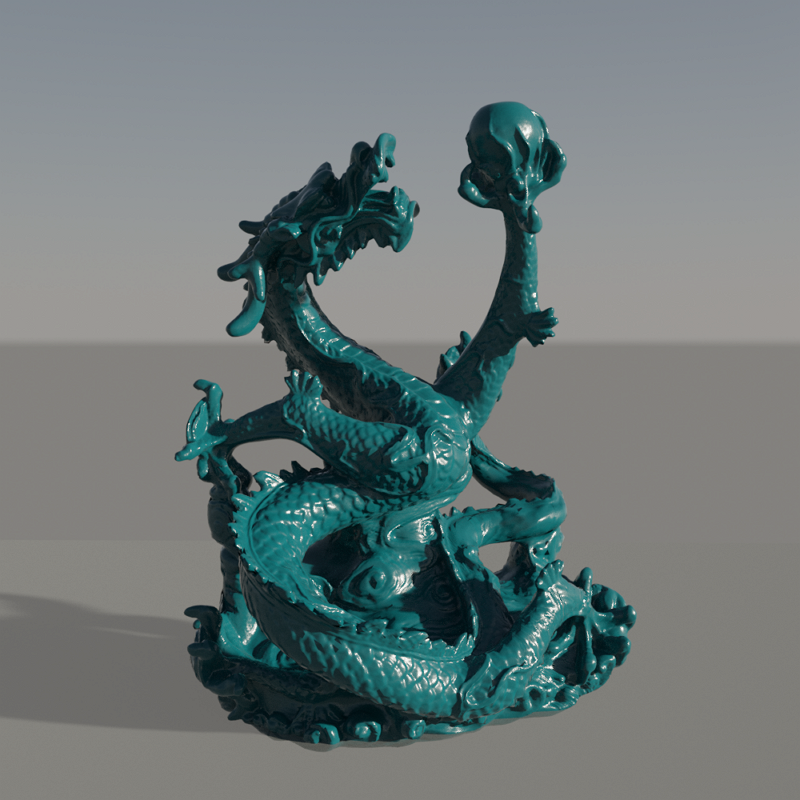
Intensity: 1 |
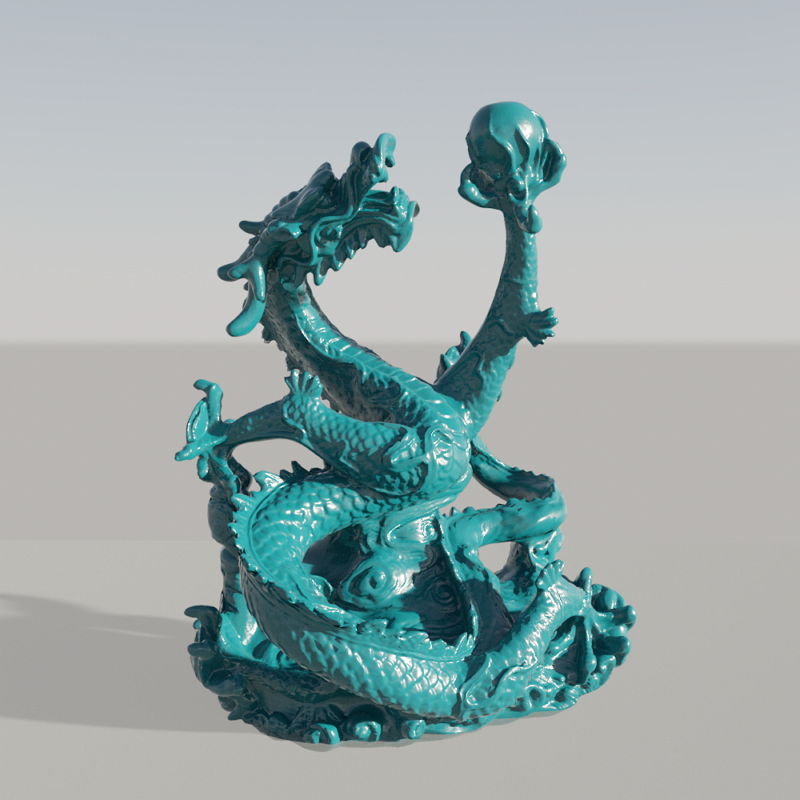
Intensity: 3 |
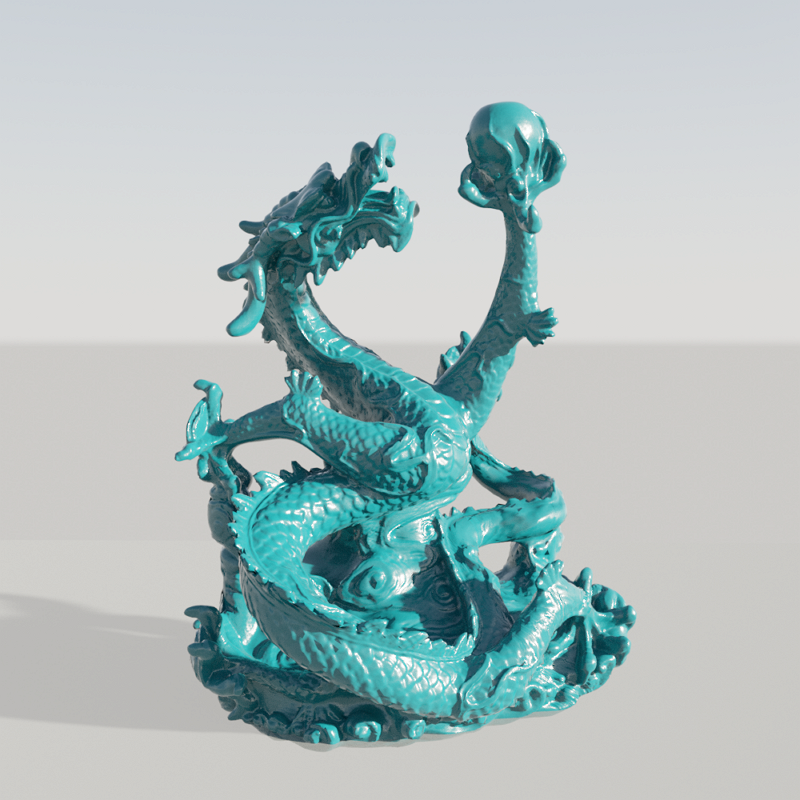
Intensity: 5 |
The Intensity parameter applies to both the environment lighting options — IBL and Sun & Sky.
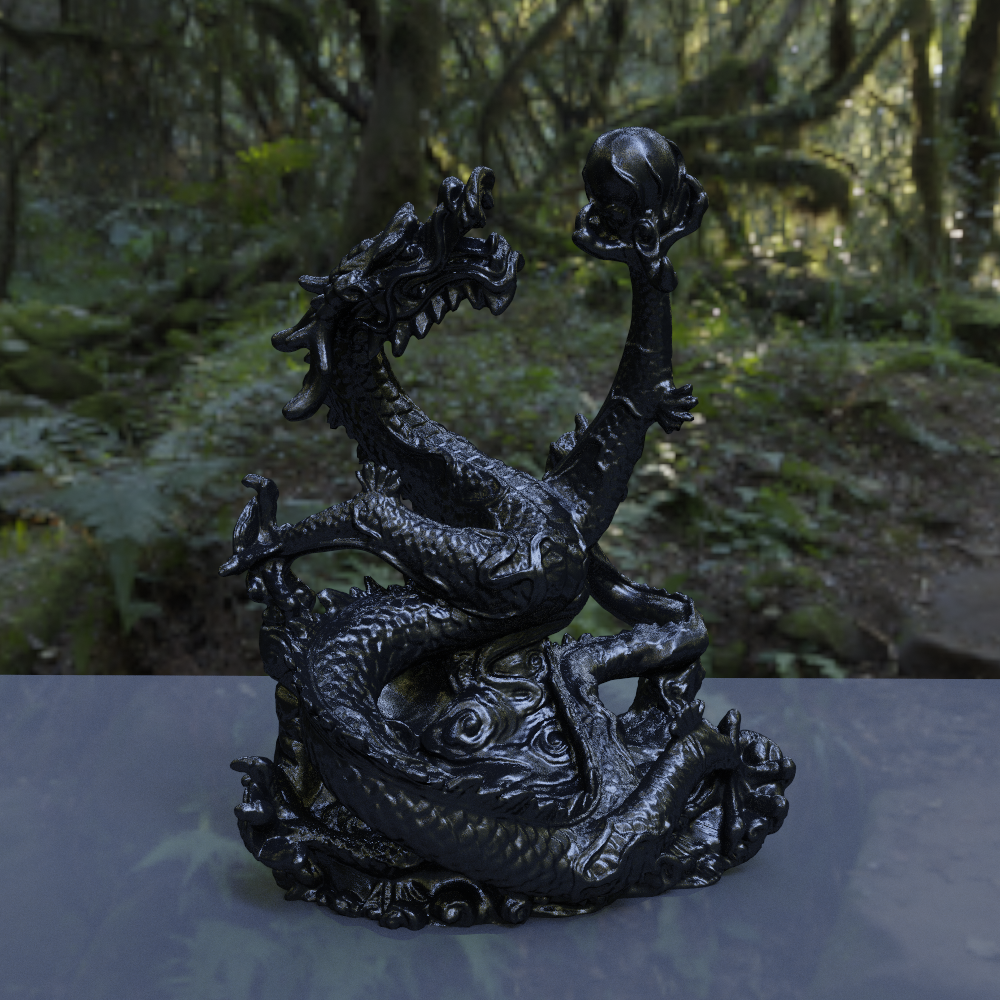
Intensity: 1 |
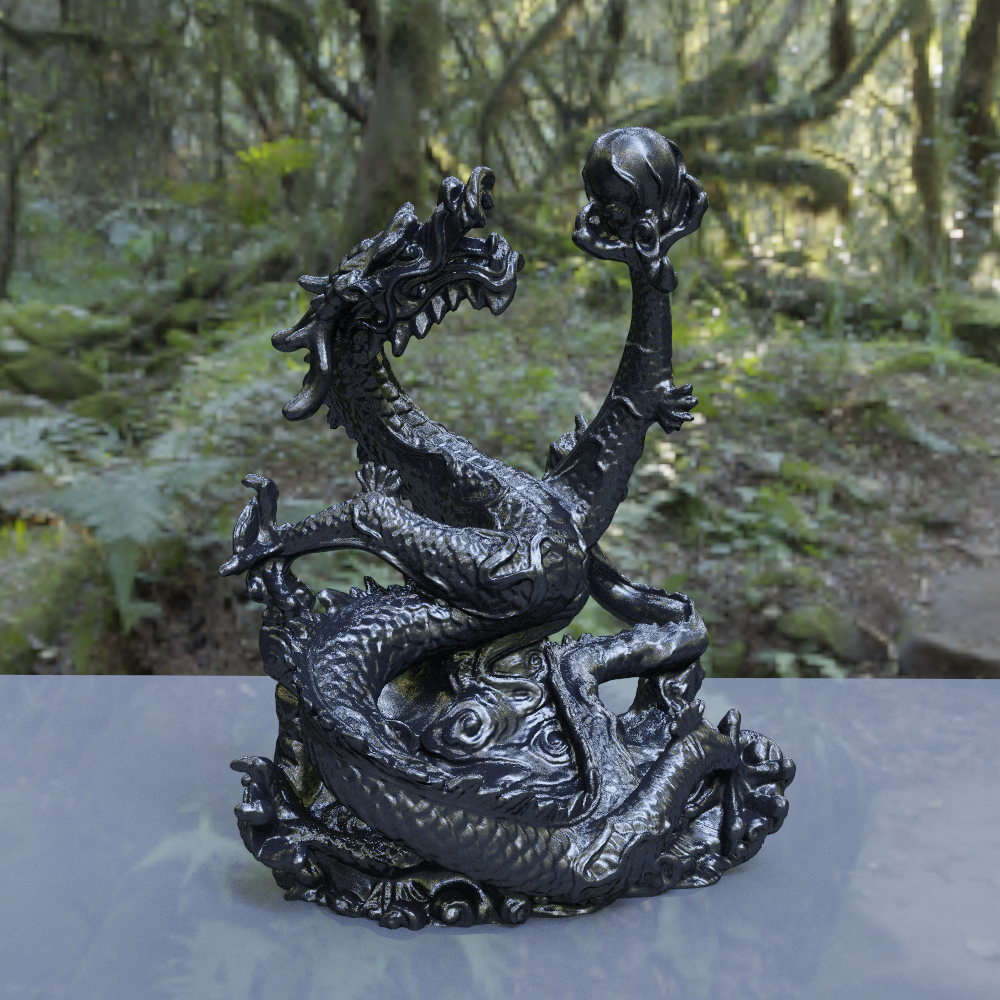
Intensity: 3 |
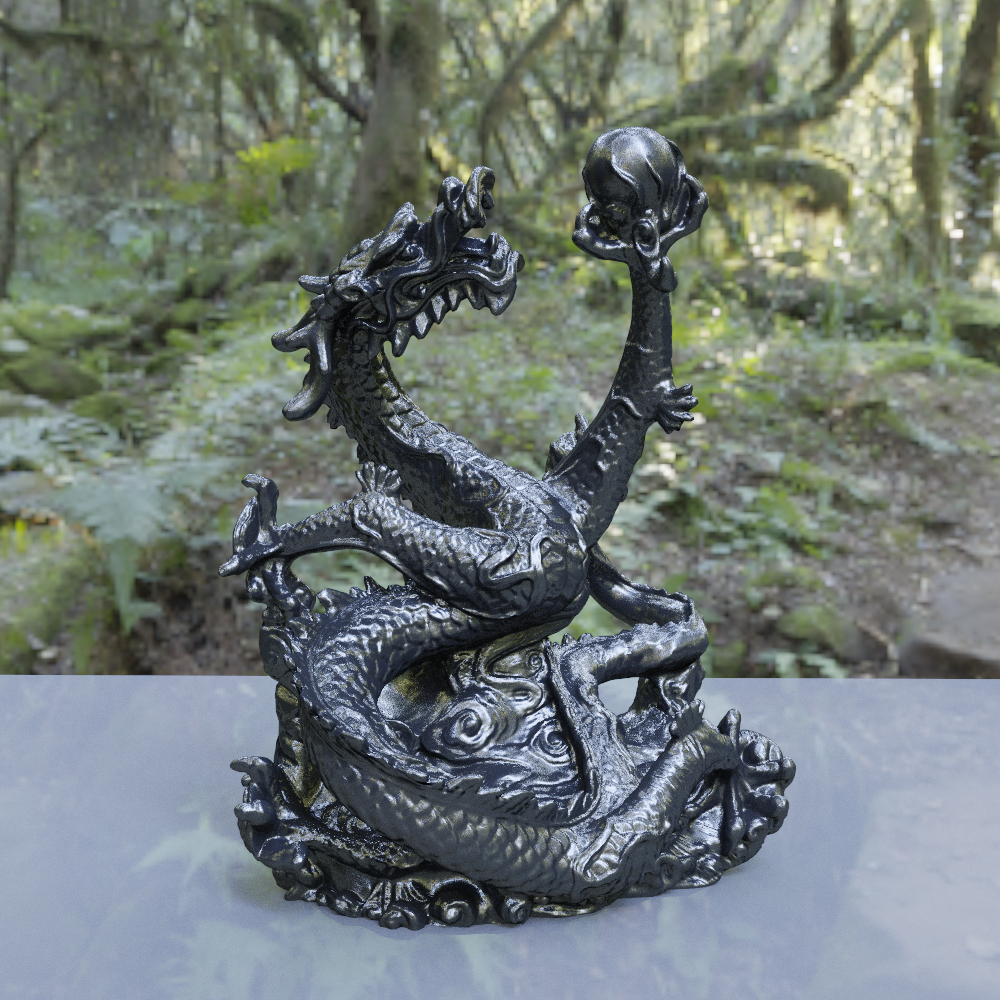
Intensity: 5 |
Gizmo
Gizmo parameters allow you to rotate the environment background around the XYZ axes to change its orientation in the scene, or get different reflections on object surfaces.
You can specify rotation values in degrees (for example, 30d or simply 30), or in radians (for example, 0.5r) which will be converted to degrees.
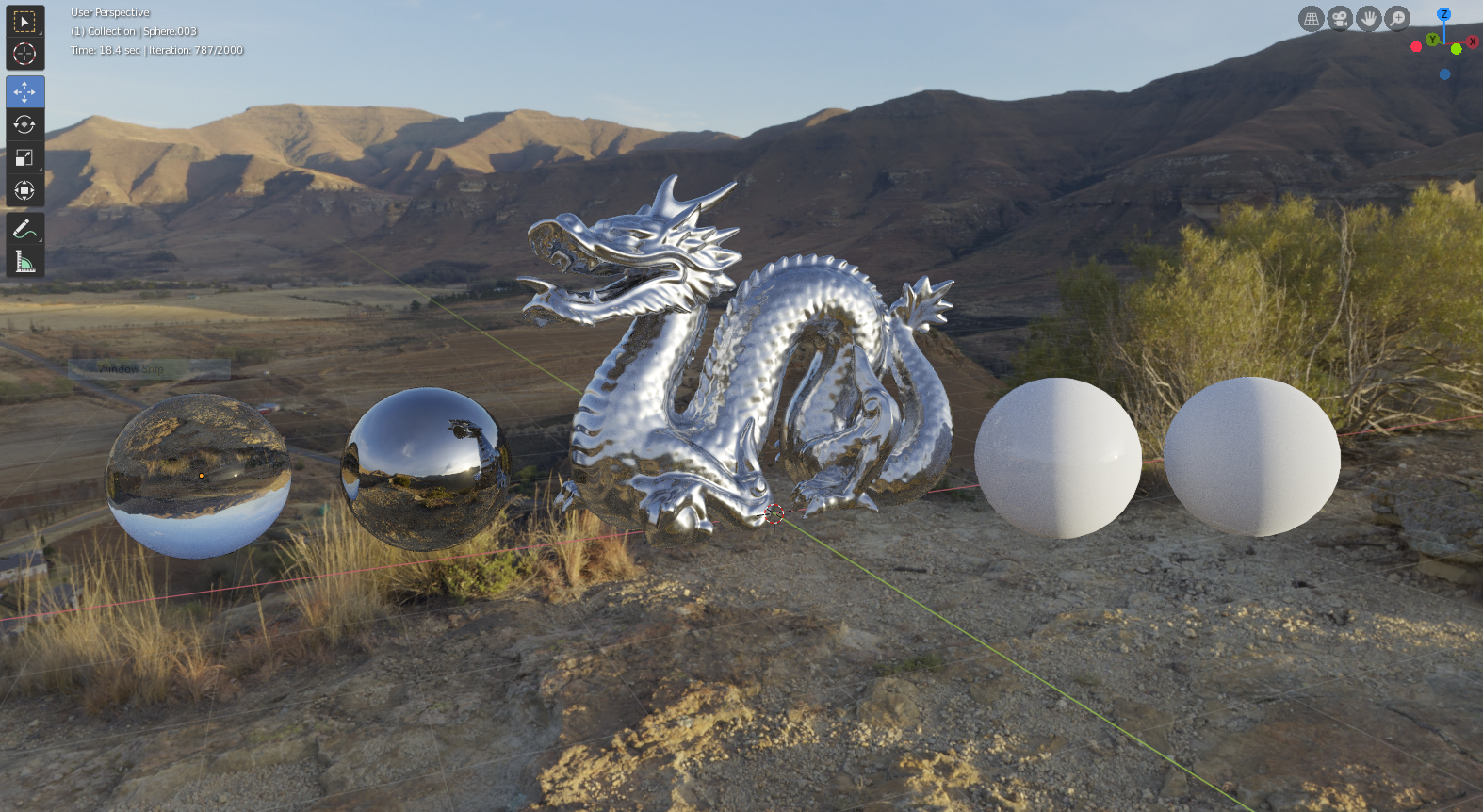
Rotation XYZ: 0 0 0 |
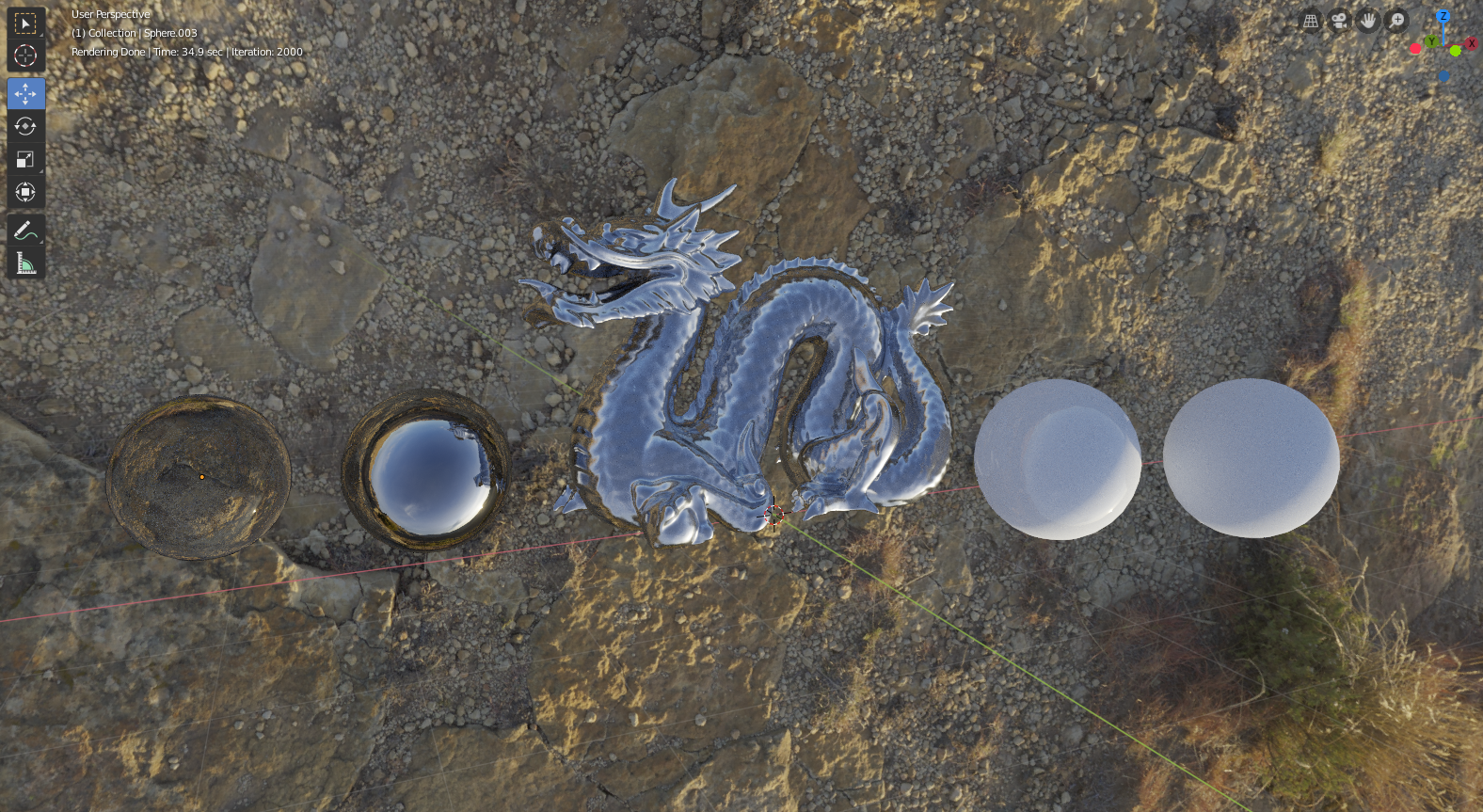
Rotation XYZ: 270 0 0 |
Overrides
Override parameters allows you to override the environment for various channels. All of the override parameters support both color and texture maps.
Background Override
The background override allows you to replace the background image or color independently of the environment lighting. The background will not affect the lighting or the reflections in the scene.
If you choose to use an image texture as the backplate, use a regular high-detailed shoot rather than a panoramic image.
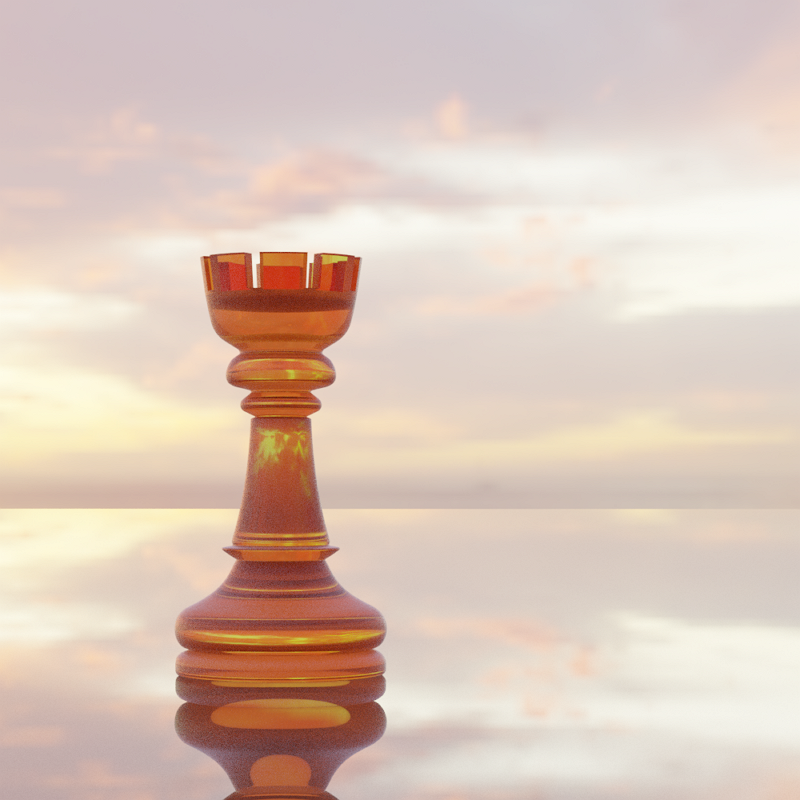
Background: IBL |
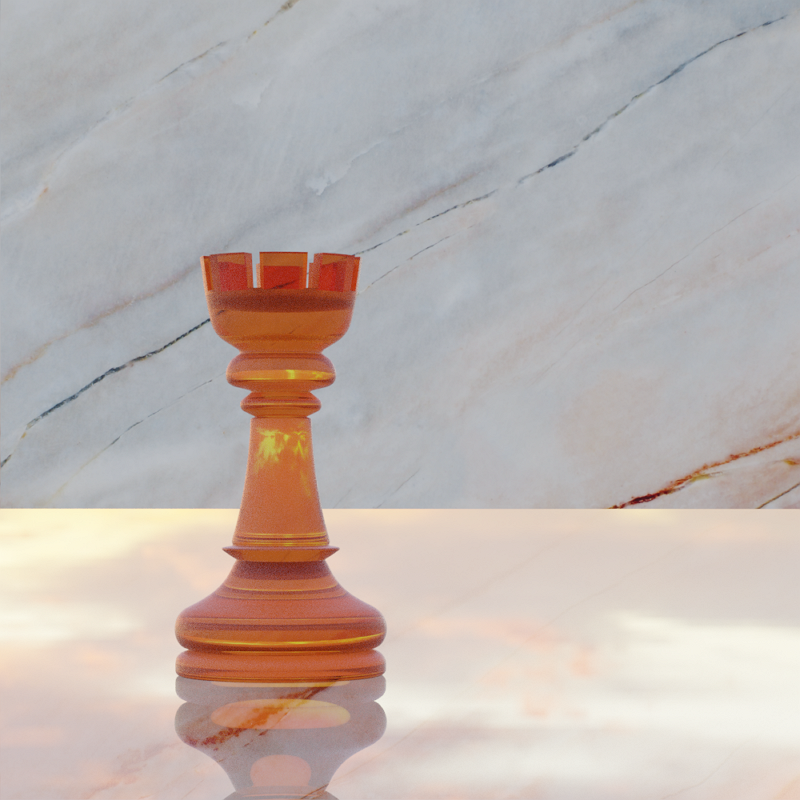
Background: overridden |
To override the background, you can use a spherical background or a flat backplate image. Use the Sphere/Backplate switch to set the desired mapping type. If you choose to apply an image texture as the backplate, use a regular high-detailed shoot rather than a panoramic image.
Note
The backplate mapping type is available for the final render only, and will not work in the viewport.
Before you apply the actual override texture, you can try Blender’s UV or color test grid to visualize how the texture will be projected onto the spherical or backplate environment. To create and project the test grid, click New and specify the image options as described in the Blender documentation.
Reflection Override
The reflection override allows you to replace the reflected environment lighting using a spherical map or color. This map or color will be applied to calculate reflections on glossy and specular surfaces.

Reflection: IBL |
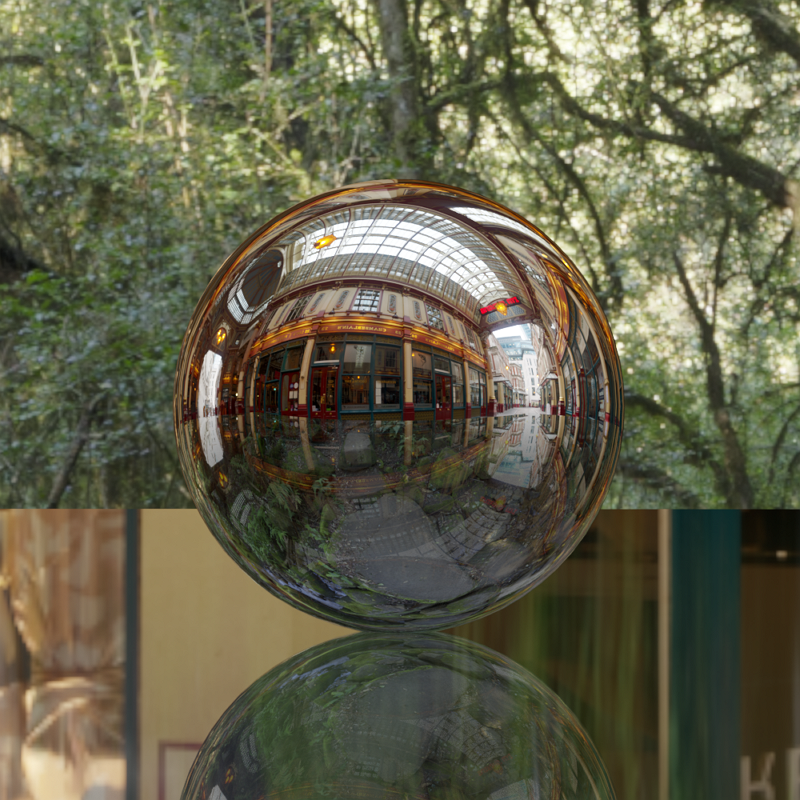
Reflection: overridden |
Refraction Override
The refraction override allows you to replace the environment lighting for refractive surfaces using a spherical map or color.
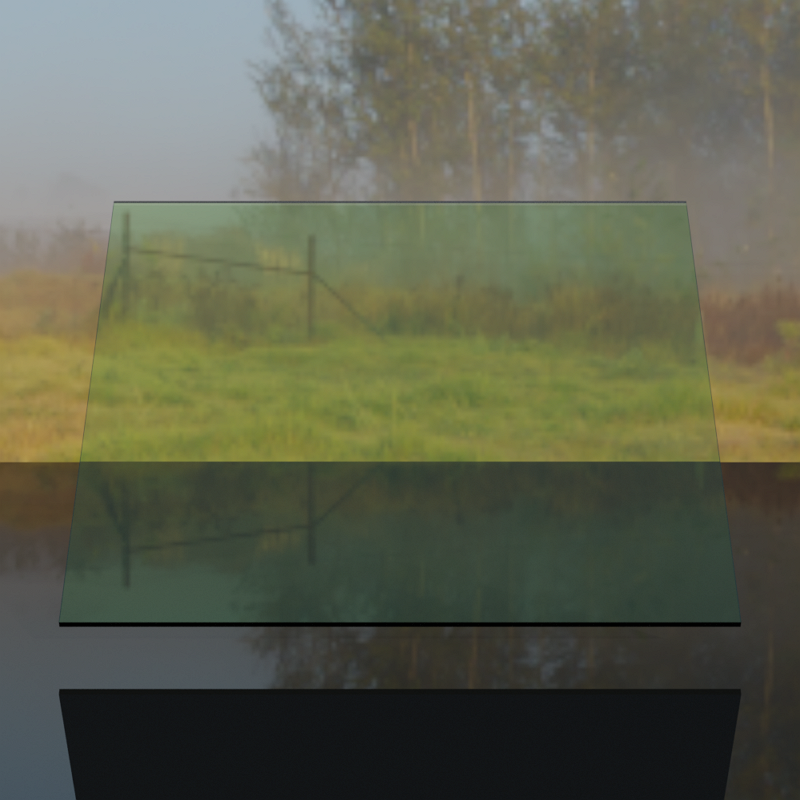
Refraction: IBL |
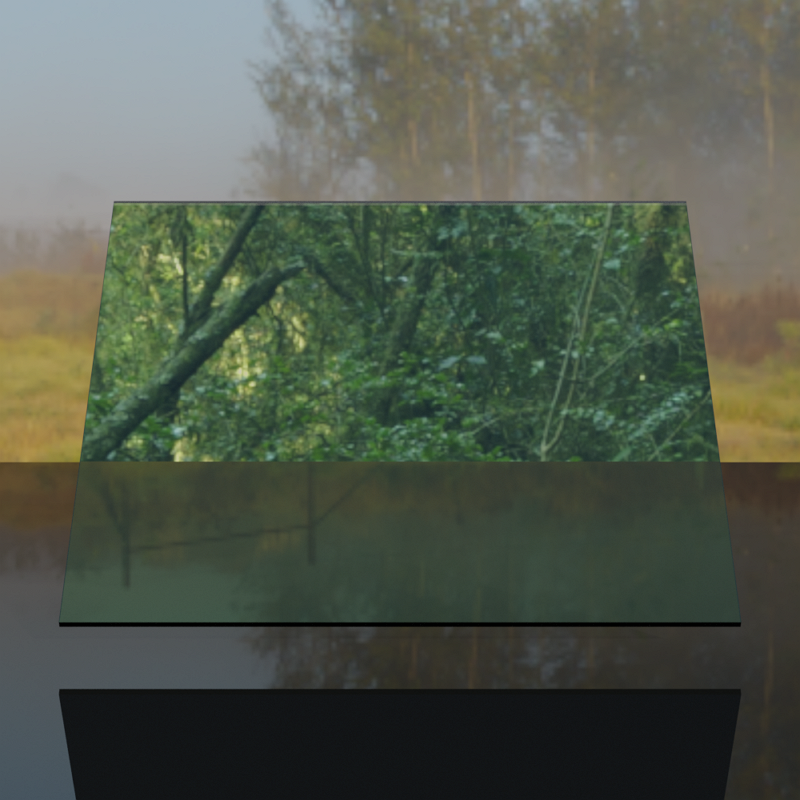
Refraction: overridden |
Transparency Override
The transparency override allows you to replace environment lighting for transparent and semi-transparent surfaces using a spherical map or color.
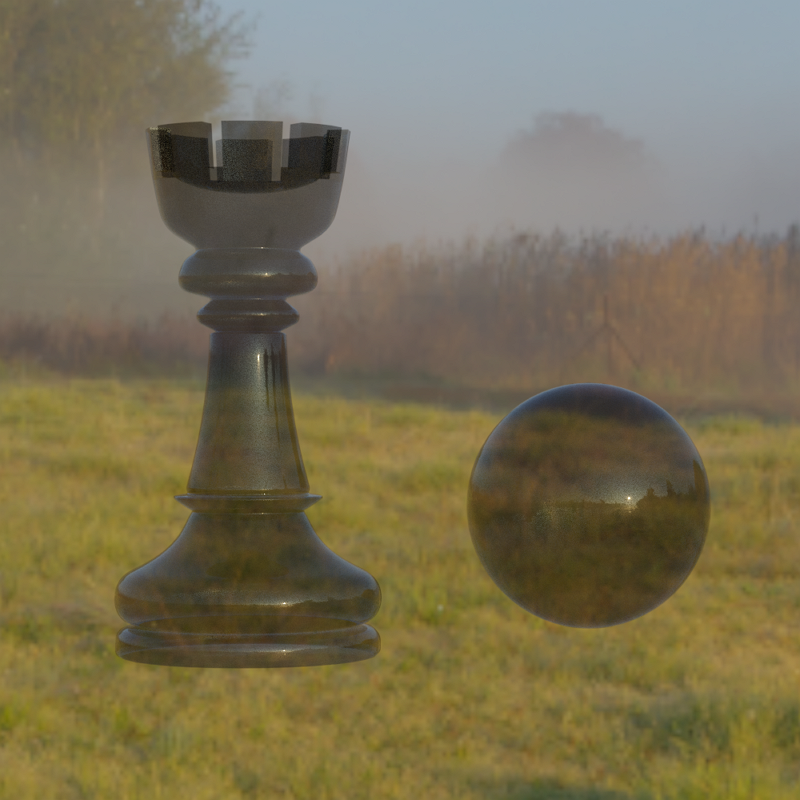
Transparency: IBL |

Transparency: overridden |